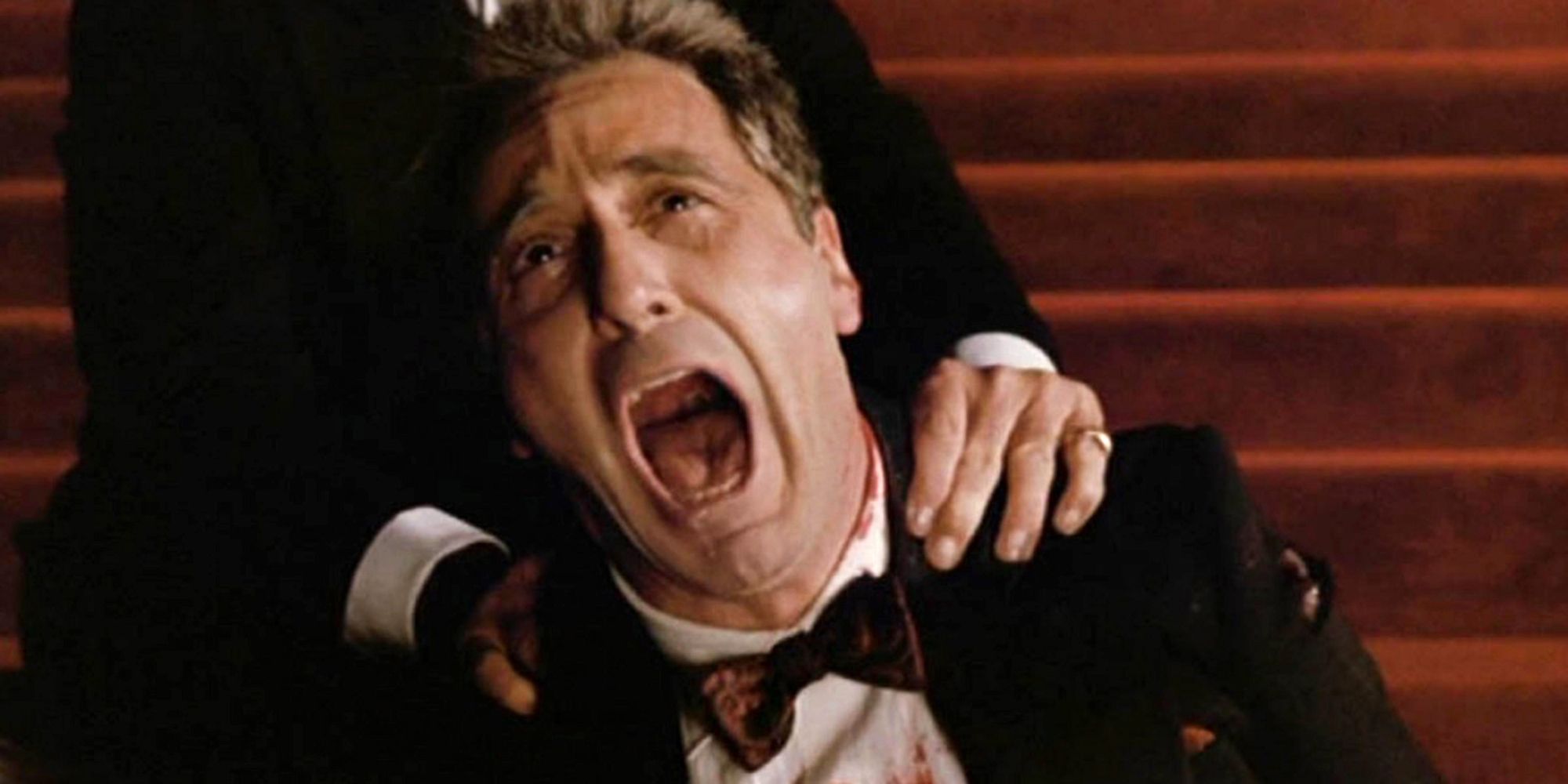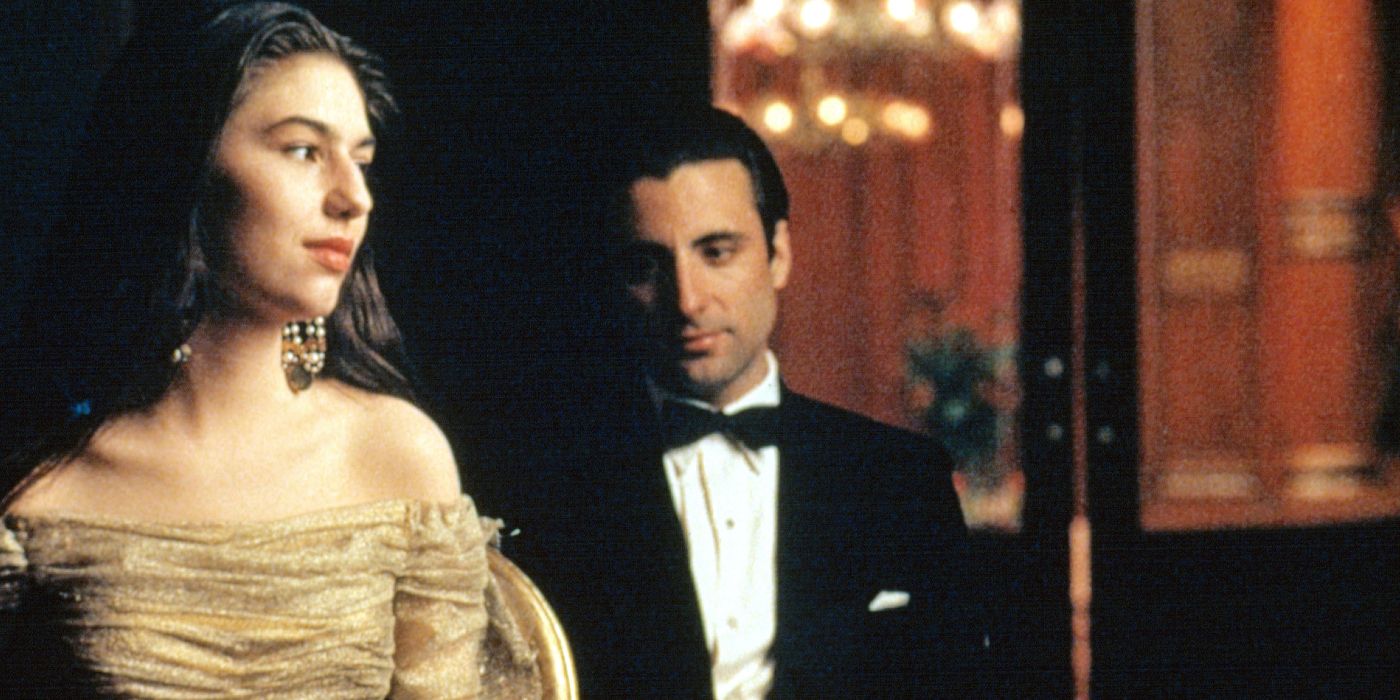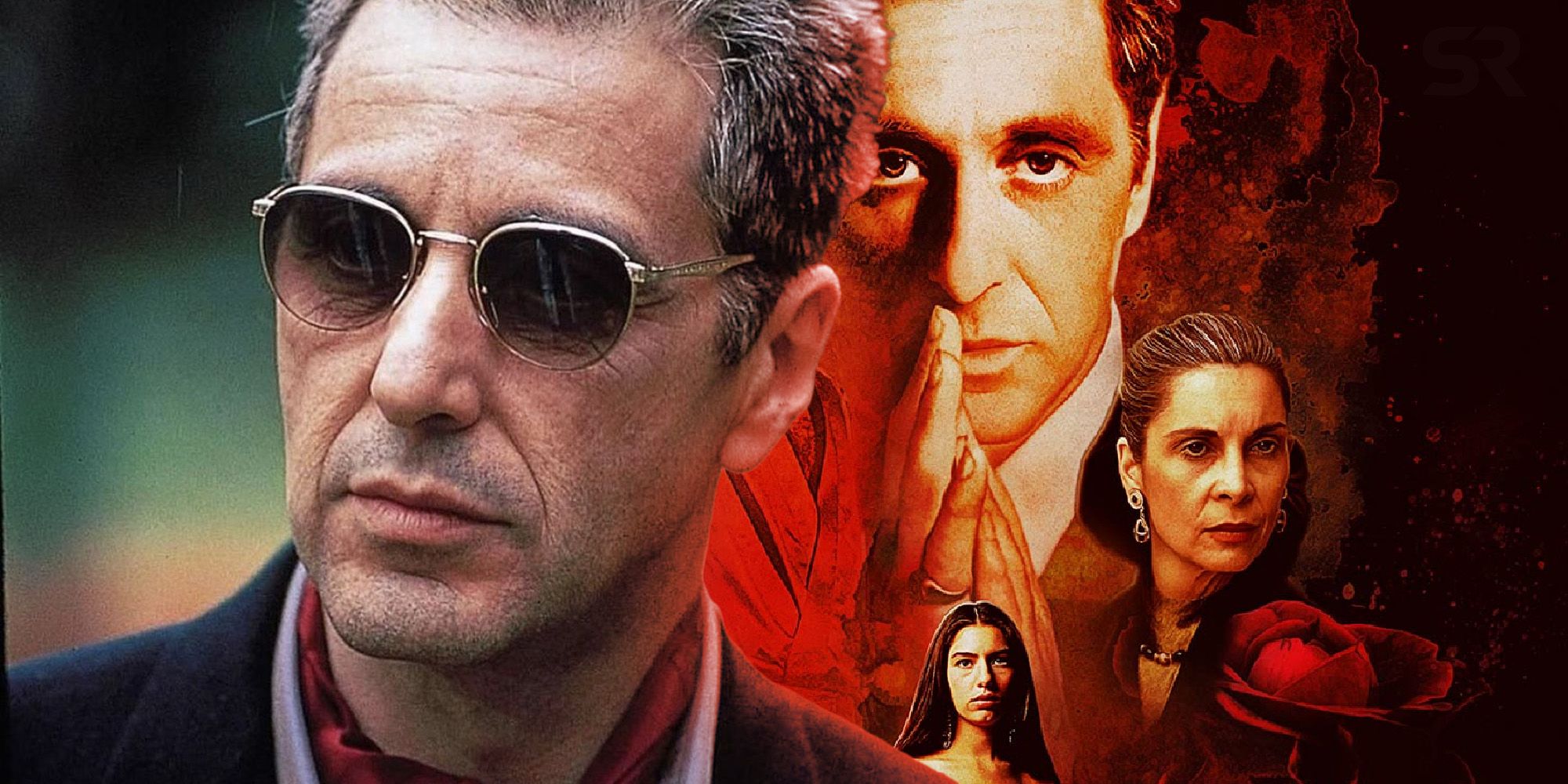Why was The Godfather Part III so badly received upon release? There are few filmmakers with a run of masterpieces quite like Francis Ford Coppola during the 1970s, which includes the first two Godfather movies, The Conversation, and Apocalypse Now. The Godfather and The Godfather Part II are considered among the greatest movies of all time, and tell a sprawling story about a mafia family and chart Michael Corleone's rise from being reluctant to join the family business to becoming a cold-blooded leader. But The Godfather 3 isn't so well-regarded.
Coppola was initially reluctant to return for The Godfather Part II, and after it was finished felt that Michael's story was complete. Paramount still pursued the third movie in the 1980s, which at one point Sylvester Stallone was linked to star in and direct, with John Travolta and Eddie Murphy possibly co-starring. That version didn't happen, and Francis Ford Coppola eventually returned for The Godfather Part III, in part as a way to pay off the huge debts he had acquired from the box-office failure of the 1982 musical One From The Heart.
Coppola's way into The Godfather Part III wasn't to view it as a sequel but as an epilogue to Michael's story and a chronicle of how the sins of his past would finally come to collect. Given that the movie arrived 16 years later and followed on from two classics, expectations were high. Unfortunately, critics and audiences were mostly mixed on The Godfather 3, and while the performances of Al Pacino, Diane Keaton, and Andy Garcia received strong reviews, many considered it a disappointing mess.
Godfather 3 Had A Stuffed Plot And Wasted Its Cast
While easily the weakest chapter in the ranking of Godfather movies, The Godfather 3 is by no means a terrible movie, but it does have notable faults. The main storyline involving shenanigans at the Vatican feels somewhat convoluted and uninvolving, several scenes feel like they genuinely don't belong (especially the helicopter assault sequence), and where the previous movies featured performers like Marlon Brando, Robert De Niro, and Robert Duvall, it feels like the bulk of The Godfather Part III is left to Pacino.
It's also hard to talk about the reception to The Godfather Part III without noting the backlash to Sofia Coppola's performance as Mary, Michael's daughter. Many articles accused the director of nepotism during the movie's release, though Sofia Coppola was a last-minute replacement for Winona Ryder, who dropped out just before filming. The bulk of the criticism focuses on The Godfather 3's Sofia Coppola casting and performance, which is admittedly quite stilted at times. All those factors added up to the movie's regrettable reception as a lackluster ending to the saga.
Did The Godfather 3 Recut Fix Its Problems?
The overall critical reception of The Godfather Part III has improved little in the 30 years since its release, but on its own terms, it's a worthy epilogue to the series that just fares badly compared to the first two. In 2020, Coppola released a new edit, dubbed Mario Puzo's The Godfather, Coda: The Death of Michael Corleone, which reordered scenes, tightened the runtime (despite its unwieldy title), and restored his original intentions with the movie. The recut has received mostly good reviews.
All of the changes Coppola made in The Godfather 3's Coda cut seem to have been for the better, such as trimming the run time to improve the film's pacing, reducing the amount of time Sofia Coppola's character Mary spends onscreen, and making key alterations to the film's opening and closing scenes. But while The Godfather Coda's pacing is better and it has less fluff, it still carries many of the same flaws, not least of which are the absence of Robert Duvall and Sofia Coppola's insufficient acting chops. All in all, The Godfather Part III will never truly hold up to the originals, whatever form it takes in the editing suite.



